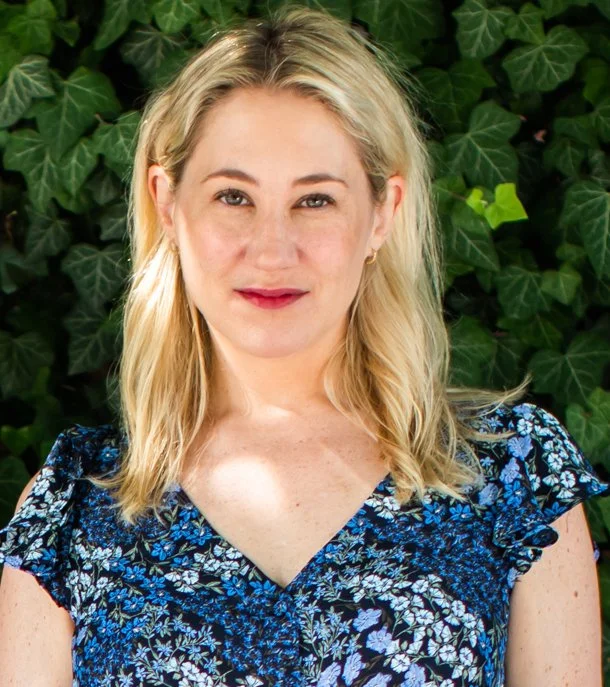Kathryn Paves
“If you don't know every single thing about your brand, inside and out, why would an investor get sold on that?”
Kathryn Paves is a brand builder, operator, and advisor behind some of the most compelling names in beauty, wellness, and consumer goods.
She is the Co-CEO of Furtuna Skin and the founder of Areum Ventures, where she partners with visionary founders to bring powerful ideas to life—from early-stage launches to high-growth scaling. Kathryn has led brand, product, and go-to-market strategy across categories, and is known for turning complexity into clarity—and potential into proof.
What do you tell brands about their brand architecture now that's different than what you would say to clients even 18 months ago?
I approach it as an architect would, like building a house. Architects see the bigger vision, but they also make sure the foundation is set. What are you building on top of that foundation? And how are you building it? And with what materials?
Pre-pandemic, there was a lot less focus on building. The barrier to entry in beauty has gotten so low, it's so easy, anyone can launch a brand. Brands didn't have to think about building a proper foundation because they didn't technically need it to achieve success.
Now, looking at some of those brands that are still around, the problems they're having stem from weak internal architecture. They're asking themselves, "Do we have the proper operation systems from a marketing perspective? What is our process? Have we lost sight of our customer?"
Unless you've honed in on it very early, you start to lose sight of that greater picture. Over the last 18 months, I've seen people slow down in the best way possible and be more mindful. I've been really inspired and jazzed about the shift in mindset from founders.
I get the desire to want to skip the whole Monopoly board and keep going past Go and collecting that $200. But those are the brands that don't last.
“Right now, you are the queen or king of your castle. The minute you take someone else's money, that hat gets kicked off. You're accountable to somebody else.”
What is a pitfall that you counsel brands to avoid?
People tend to get ahead of their skis. They have this big vision and want to do all these things, which cost a lot of money. But I sometimes actually talk founders out of raising money, depending on where they're at.
If they're pre-market, pre-revenue, and they need it to launch, that's one thing. But if you're already out in the market, don't complicate things by adding in someone else's money.
Right now, you are the queen or king of your castle. The minute you take someone else's money, that hat gets kicked off. You're accountable to somebody else.
Do you have a piece of universal, reliable advice for founders?
Know your numbers. There are a lot of founders who love to stick their heads in the sand with certain parts of the business. I get it, because not every founder is great at operations, or marketing, or product development. You can't be great at everything.
But if you're raising money for your brand, you are its biggest ally. And if you don't know every single thing inside and out, why would an investor get sold on that?
Knowing the numbers also helps you prepare for the future, so as you grow you're not blindsided.
For example, getting into retail is one thing, but getting in and being successful is another. So when you get the opportunity to be in Ulta, Sephora, Blue Mercury, wherever, you'll know you're ready for it. Fiscally, mentally, inventory-wise, manpower-wise, all of it.
Ultimately, I see founders lose sight of all of that when the goal is getting into Sephora. What happens if that isn't a success?
You built a brand for Sephora versus building a brand for yourself, and for your target market that just happens to shop at Sephora. It's not always the case. They can be a fantastic partner, but if you go too soon it's like getting dumped in the ocean with no life preserver. If you fail there, how are you going to raise the next round?
What's the most fun part of your many, many jobs?
Making things come to fruition. There's nothing more fulfilling than having someone come in with a seed of an idea and then seeing it through to its ultimate goal.
I always gravitate towards pre-market, pre-revenue, and early-stage brands, because there's still so much energy and enthusiasm.
Even after helping launch so many brands, it's still Christmas morning when you know that UPS is coming that day with the first sample of your packaging. There's nothing better. And to be able to help people actually manifest the reality of that, I pinch myself.
Do you have any sort of tricks to get brands thinking outside of the bubble they're in?
Escaping the bubble can be really hard, and that's why I always say get outside help. An outsider you trust coming in to diagnose is so valuable.
Sometimes the thinking can change in a week, even in one meeting, when all of a sudden the executives realize both the problem and solution are staring them in the face.
If that's not the case, then it always comes back to the customer. If there's an issue where your sales are plateauing or dropping, or you're just not connecting with a particular customer at a retailer, you have to get back to how the customer perceives you. What do we think we're telling them? Do they care? How do we know they care? What are they actually taking in?
That translation, just like any relationship - a husband, a wife, a parent, a kid - is the same from brand to consumer. By the time it gets to them, are they receiving totally different messaging? Are we in the wrong retailer? Reassessing every single point along the way from the perspective of relationship communication does wonders.
What's an unexpected way that you jumpstart creativity or ideas?
I play with my son. He just turned four and is so talkative. We're actually raising him bilingual, so that's been an exciting challenge. But, yeah, he is the ultimate palate cleanser because I'm very left and right-brained.
Sometimes in the course of a day, I'm doing something very creative, like designing something or concepting a fragrance bottle. Then I shift over to creating a financial model for a brand that's about to raise funds. So, in order for me to switch, Arlo is my go-to. I immediately wipe the slate clean and I stop thinking about work.
What is a recent guilty TV pleasure?
Million Dollar Secret. Do you know that one? Oh my God. It's a reality show where everybody gets a box, and when everybody opens their box there's only one person who has the million dollars.
But then! The box moves around, and people have to figure out who the millionaire is in the group, and the millionaire has to complete all these challenges.
It definitely has a Traitors vibe, but you just go with it. It's on Netflix, hosted perfectly by British comedian Peter Serafinowicz, and a British comedian commenting on ludicrous American behavior is the best.

